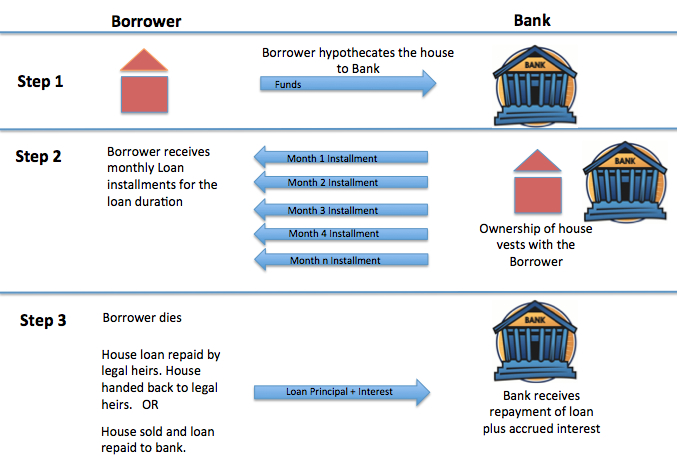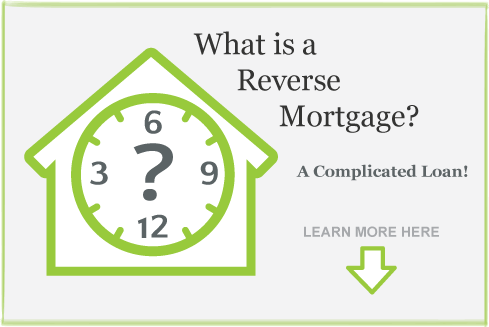Is It the Right Time to Purchase Reverse Mortgage? Here’s What to Consider
Is It the Right Time to Purchase Reverse Mortgage? Here’s What to Consider
Blog Article
Empower Your Retired Life: The Smart Way to Acquisition a Reverse Mortgage
As retirement techniques, lots of people look for effective approaches to boost their economic self-reliance and health. Amongst these methods, a reverse home loan emerges as a practical choice for house owners aged 62 and older, enabling them to touch into their home equity without the necessity of regular monthly settlements. While this economic tool offers several advantages, including raised cash money circulation and the prospective to cover crucial expenditures, it is vital to comprehend the complexities of the application procedure and crucial considerations entailed. The next actions may reveal just how you can make a well-informed choice that could significantly impact your retired life years.
Comprehending Reverse Home Loans
Understanding reverse home mortgages can be critical for homeowners looking for financial adaptability in retirement. A reverse mortgage is an economic product that permits qualified home owners, generally aged 62 and older, to convert a portion of their home equity into cash money. Unlike standard home loans, where consumers make month-to-month payments to a lender, reverse home loans make it possible for homeowners to get repayments or a lump sum while preserving ownership of their property.
The amount available via a reverse home loan depends upon several aspects, including the homeowner's age, the home's worth, and existing passion rates. Significantly, the lending does not need to be repaid till the property owner sells the home, leaves, or dies.
It is necessary for prospective consumers to understand the ramifications of this economic item, including the impact on estate inheritance, tax considerations, and recurring duties related to property maintenance, taxes, and insurance. Furthermore, counseling sessions with certified experts are commonly called for to make sure that debtors fully comprehend the conditions of the financing. Overall, a comprehensive understanding of reverse mortgages can encourage homeowners to make informed choices regarding their economic future in retired life.
Benefits of a Reverse Home Mortgage
A reverse mortgage offers a number of engaging benefits for eligible home owners, particularly those in retired life. This economic tool enables seniors to convert a part of their home equity right into cash, offering crucial funds without the demand for monthly home loan settlements. The cash obtained can be utilized for different objectives, such as covering clinical expenditures, making home improvements, or supplementing retirement earnings, therefore improving total economic flexibility.
One significant advantage of a reverse home loan is that it does not need payment up until the home owner relocates out, sells the home, or passes away - purchase reverse mortgage. This feature enables retirees to maintain their lifestyle and satisfy unforeseen expenses without the concern of regular monthly payments. Additionally, the funds received are usually tax-free, enabling house owners to use their money without worry of tax implications
Additionally, a reverse mortgage can provide satisfaction, recognizing that it can work as an economic safety and security internet during challenging times. Homeowners also preserve possession of their homes, guaranteeing they can continue residing in a familiar setting. Ultimately, a reverse mortgage can be a calculated funds, encouraging senior citizens to handle their financial resources effectively while appreciating their golden years.
The Application Process
Browsing the application process for a reverse mortgage is an essential step for homeowners considering this economic Full Report choice. The first phase involves evaluating qualification, which generally requires the house owner to be at the very least 62 years of ages, own the home outright or have a low home loan balance, and inhabit the home as their primary home.
Once eligibility is validated, house owners must go through a counseling session with a HUD-approved counselor. This session makes certain that they completely understand the effects of a reverse home loan, consisting of the obligations entailed. purchase reverse mortgage. After completing therapy, candidates can proceed to collect necessary paperwork, consisting home of proof of earnings, properties, and the home's worth
The next step involves sending an application to a lender, who will certainly assess the monetary and building qualifications. An assessment of the home will certainly also be carried out to establish its market worth. If approved, the loan provider will certainly offer lending terms, which must be assessed carefully.
Upon acceptance, the closing process complies with, where final records are signed, and funds are disbursed. Recognizing each stage of this application procedure can considerably enhance the home owner's confidence and decision-making regarding reverse mortgages.

Trick Factors To Consider Before Getting
Acquiring a reverse home loan is a considerable financial choice that needs careful factor to consider of a number of essential factors. Reviewing your monetary needs and goals is purchase reverse mortgage just as essential; determine whether a reverse home mortgage straightens with your long-term plans.

In addition, assess the effect on your current way of life. A reverse home loan can impact your qualification for sure federal government advantages, such as Medicaid. Finally, look for professional guidance. Consulting with a financial advisor or a housing therapist can provide valuable insights customized to your specific conditions. By extensively evaluating these considerations, you can make an extra enlightened choice regarding whether a reverse home loan is the ideal monetary strategy for your retirement.
Taking advantage of Your Funds
When you have safeguarded a reverse home loan, efficiently managing the funds comes to be a top priority. The versatility of a reverse home loan permits home owners to use the funds in various means, however tactical preparation is necessary to maximize their advantages.
One crucial method is to develop a budget plan that outlines your month-to-month costs and economic goals. By identifying essential costs such as medical care, real estate tax, and home maintenance, you can designate funds accordingly to ensure lasting sustainability. Additionally, consider using a portion of the funds for financial investments that can create income or value gradually, such as mutual funds or dividend-paying stocks.
An additional important element is to keep an emergency fund. Establishing apart a reserve from your reverse home loan can aid cover unanticipated expenses, supplying assurance and financial stability. In addition, seek advice from a monetary expert to discover possible tax ramifications and just how to incorporate reverse home loan funds right into your total retired life strategy.
Ultimately, prudent management of reverse home loan funds can enhance your monetary safety, allowing you to appreciate your retired life years without the anxiety of monetary unpredictability. Careful planning and informed decision-making will ensure that your funds work efficiently for you.
Final Thought
In verdict, a reverse home loan offers a feasible financial strategy for seniors looking for to enhance their retired life experience. By converting home equity right into accessible funds, people can address crucial costs and secure extra economic resources without sustaining monthly settlements.
Understanding reverse home mortgages can be essential for home owners seeking monetary adaptability in retirement. A reverse home loan is an economic product that enables qualified property owners, commonly aged 62 and older, to convert a part of their home equity right into money. Unlike typical home loans, where borrowers make regular monthly settlements to a lender, reverse home mortgages enable house owners to receive payments or a lump sum while maintaining possession of their building.
In general, a detailed understanding of reverse home mortgages can encourage homeowners to make informed decisions about their financial future in retired life.
Seek advice from with an economic expert to discover feasible tax obligation ramifications and exactly how to integrate reverse home loan funds into your overall retired life approach.
Report this page